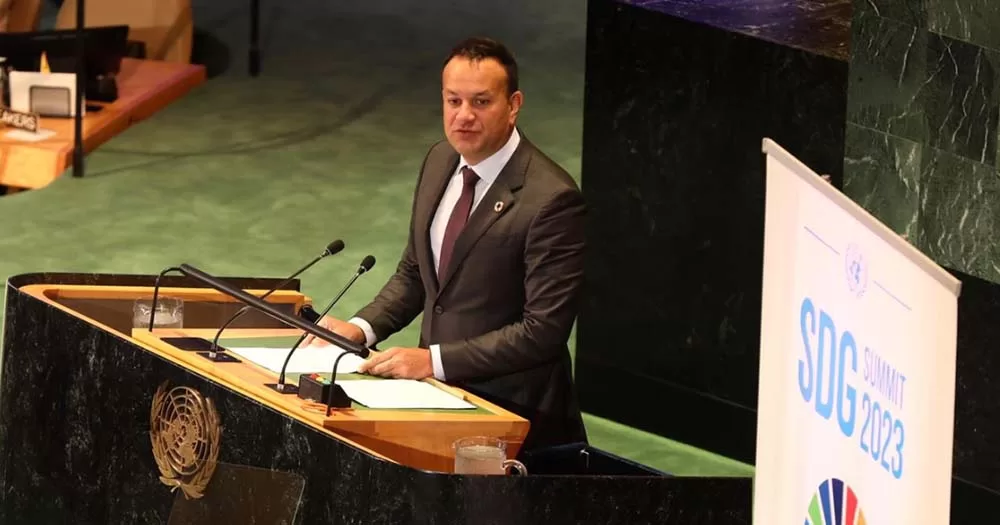In a United Nations speech in New York on Monday, September 18, Taoiseach Leo Varadkar expressed deep concern at the rise of anti-LGBTQ+ violence and hatred, as well as the “alarming pushback” against queer rights in Ireland and abroad.
When addressing the heightened polarisation that has led to increased hate, the Taoiseach said he deeply regrets the “escalating attempts by some states to undermine existing international commitments and standards”.
He also discussed an increased backlash against transgender people and also referenced the “openly discriminatory” and “draconian” laws being re-introduced in some countries, which include the death penalty. Varadkar emphasised that Ireland is committed to working alongside the Core Group to address this pushback.
These comments were made during a United Nations High-Level side event, where the Taoiseach referenced the 75th anniversary of the Universal Declaration on Human Rights. He explained that on this significant occassion, “It is more important than ever to re-affirm our dedication to the universality of human rights, that LGBTI rights are human rights.”
During his speech, Varadkar also shared how, when it comes to LGBTQ+ inclusion, Ireland has come a long way in recent history.
Up until only 30 years ago, same-sex relations between consenting males were classified as criminal offences in Ireland. He described: “I can vividly remember an Ireland shaped by shame, conformity and fear, where my election as Taoiseach, as Prime Minister, as an openly gay man would have seemed an impossibility.”
By contrast, Varadkar said: “The Ireland of today is more understanding, more accepting, more inclusive and more equal. More willing to respect fluidity, diversity and personal freedom.”
Varadkar shared how, in 2015, Ireland became the first country in the world to introduce marriage equality by popular vote in a historic referendum. In the same year: “…the Gender Recognition Act was passed, which allowed for transgender citizens to have their gender recognised through self-determination.”
Regarding this recent progress, the Taoiseach said Ireland’s history can be an example for other nations, adding: “we are not here to lecture or dictate to others, but to share our journey”.
Ireland is not here to lecture or dictate to others, but to share our journey. Ireland also continues to face challenges & LGBTI people face significant barriers to full participation in public life. I sincerely hope that our story can be a source of optimism at a difficult time. pic.twitter.com/hxjO4hJXtn
— Leo Varadkar (@LeoVaradkar) September 18, 2023
Before concluding his speech, Varadkar acknowledged that while he is exceptionally proud of the progress made, Ireland still has work to do when it comes to LGBTQ+ rights. He said: “the government is not naive to think that LGBTI people don’t continue to face significant barriers to full participation in public life.”
He further discussed plans to disregard historic convictions for consensual sexual activity between men and introduce a conversion therapy ban in Ireland.
© 2023 GCN (Gay Community News). All rights reserved.
Support GCN
GCN is a free, vital resource for Ireland’s LGBTQ+ community since 1988.
GCN is a trading name of National LGBT Federation CLG, a registered charity - Charity Number: 20034580.
GCN relies on the generous support of the community and allies to sustain the crucial work that we do. Producing GCN is costly, and, in an industry which has been hugely impacted by rising costs, we need your support to help sustain and grow this vital resource.
Supporting GCN for as little as €1.99 per month will help us continue our work as Ireland’s free, independent LGBTQ+ media.

comments. Please sign in to comment.